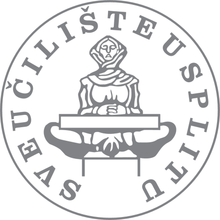Josip Novakovich (josipn@yahoo.com)
Jerusalem according to Cats
In Jerusalem, I expected to see many dogs and only a few cats. The domestic cat is not mentioned in the Bible at all. Apparently it was considered a pagan animal, an Egyptian deity, and to discourage potential idolatry (and yes, it’s easy to indulge in feline idolatry), the cat is omitted from the Holy Scripture. And on the other hand, Prophet Mohamed, legends have it, loved cats, and once, in order not to wake up his cat Meuzza who slept on his sleeve, he cut the sleeve off, and walked away quietly. And Arab mistrust of dogs is legendary. So I assumed Israel would be divided yet along another line: dogs in Jerusalem, cats in Ramallah.
And to confirm my prejudice, Israelis against Cats, a friend of mine, Farrah, from Sidon in Lebanon, said she hated the State of Israel because it killed her cat.
“I can’t believe that,” I replied.
“Well, yes, after they invaded Southern Lebanon three years ago, they killed my cat.”
“You saw them shoot her?”
“No, but after the soldiers left, my kitty was gone. They probably shot her.”
“And you base your political views on that, that your cat is missing.”
“Yes!”
When I again ran into Farah in Montreal in the winter, where she looked like a sparkly hieroglyph misplaced in the Latin alphabet of snow-banks, she asked me to let her cat-sit my long-hair black cat Pushkin because she had lived without a cat way too long. She had in the meanwhile become a professor of Middle Eastern Affairs, in Michigan. Anyhow, Farrah contributed to my simplistic prejudicial division: Arabs & Cats vs. Israelis & Dogs.
Filled with feline and canine prejudices, the first evening of my 3 month stay in Jerusalem, I was happy to hear no barking of dogs, and I stepped on no dog-poop, which is something I couldn’t boast of in Berlin, Paris, and St. Petersburg. Instead I heard chirping of swallows, Muslim calls to prayer echoing from different directions, and smelled cypress and mint.
While I was teaching a writing class and discussing food, such as chicken drumsticks, as a motif in Boule de Suif by Maupassant, a gray tabby strode confidently into the classroom through the door. Maybe the discussion excited him. But as he sniffed around, he looked bored, and concluding there was nothing edible, he strode slowly out the classroom. “Wow,” I said, “that’s cool. How did he get in?”
“Oh,” Leanne, a student from Tel Aviv, said. “That’s just Heidegger.”
“How do you know?”
“There are lots of cats at the Hebrew U,” she said, “and they all have august names. My favorite is Heisenberg.”
During the break I went out, and sat in the garden for the Blind, at Yigal Square. I could sniff all sorts of plants there, evergreen bushes, and flowers. But then, most of Jerusalem was scented wonderfully from evergreens and all sorts of herbs and flowers, so that the whole city was a paradise for the blind. You could close your eyes and inhale and each time it would be a different smell. But some of the smells here were not so pleasant, namely cat urine. There were cats of all stripes and colors reclining, some sun-bathing, others sleeping, some cleaning themselves, and none of them looked scared or skittish. Some of them had clipped ears.
So I asked Leanne, “It’s strange, many cats miss the tips of their ears. Do they fight that much? I haven’t seen a cat-fight yet.”
“Oh, that means they were picked up in the streets as strays, they got all their shots, and they sat in an animal shelter for a while but nobody would adopt them, and rather than to exterminate them, the Israeli SPCA releases the cats in parks, universities, and quiet streets, where they can live well. The climate allows it, and it keeps the mice population down.”
“So no cats get exterminated?”
“Some do. As you can see, there are still too many. But the SPCA tries to avoid it.”
“Now I understand why the cats fight so little, they are neutered. What a good system!”
On the way back to the classroom, I observed several cats strolling around indoors in the university corridors. The university is such a maze of corridors that everybody keeps getting lost the first few weeks after enrolling, but the cats seemed to know where they were going. To them, there was no difference between the inside and the outside.
I was tempted to adopt an orange long-hair, who looked just like my son’s tomcat had, but then, as I watched him walk around the campus of student village on the French hill (a huge complex of fenced dorms with about 8,000 students living there), and after seeing him run around with a mouse in his jaws, I concluded the cat was doing well. Why take him out of the environment where he was safe, warm, and self-confident?
At the Ben Gurion University of the Negev in Beer Sheva, I visited the English Department on the 5th floor of the Humanities Building, and a cat strolled in the corridor.
“How did the cat get here, that’s pretty high,” I asked.
“She probably took the elevator,” the secretary said. “Sometimes she takes the stairs but usually the elevator. I don’t know how she does it, maybe by smell.”
“What’s her name?”
“She doesn’t have any. We just call her the cat, she’s the only one who makes it here. She’s not supposed to be here, we even have signs in Hebrew, don’t feed cats. And she would be better off at the central gathering spot for cats, where cats are fed daily.”
“Really? Who feeds them?”
“The janitors. It’s someone’s job to leave them enough food every day. And if they are well fed, they kill fewer birds, so it’s really good to feed them.”
Later, after the reading when I was picking up the check, I saw the cat sleeping on the secretary’s keyboard.
“I thought you didn’t like her.”
“I don’t mind her. And it’s not me she loves but the computer heat. And I think she wants to be petted, and so if she’s right in front of me, sometimes I don’t have much choice.”
“I think you should give her a name, you work together.”
“You give her a name.”
“Lucy, how about Lucy?”
“Very good, from now on we will call her Lucy,” she said, and handed me the check. I probably deserved the check more for naming the cat than for giving a reading about Balkan murderers.
I was usually good at naming animals but not as good as my son, who named one of our cats Flash Flood (as he used to run down the hill just like a sudden creek would after big rains in Ohio), and another one, Fluffy Mars (his red tomcats), and a third, a tabby, whom we found in the state forest peeking behind a tree, he named Peep. Peep had one of his legs stuck in a tight flea collar, and so he limped on three legs, dumped in the forest, awaiting to be eaten by foxes or raccoons. He became a fantastic pet, very dominant, so that Flash Flood indeed ran down the hills very fast before him, and Fluffy Mars became fluffier in his presence. But this story is not about Ohio cats but Israeli cats. So, back to it.
Some students fed the cats around the dorms, some adopted them and took them away with them when they left, but many cats just stayed there and hunted in the bushes and rummaged through large garbage bins. Many looked shiny and healthy, but some had mange, and pussy eyes, and big gashes. They all seemed to have their favorite places. One for some reason liked to sleep on a bench in the anteroom of the large laundry room.
In the quarry caves deep under the old city, deep under the Dome of the Rock and the Holy Sepulcher, roughly where Hell should be in the old cosmology, I saw several cats. One family, a mother and three 6-8 week old kittens, lounged on the base of a large lamp, which shone onto the cave walls, as the cave is a tourist attraction. A tabby kitten was running around with a frog in its mouth. The whole family looked healthy. I wondered how long they could stay healthy in the dark and imagined that the mother would lead them out into the streets when necessary, and then, when necessary they would have this entire nether-world all to themselves and the devil.
But outside the walls of the old city, near the Damascus Gate, I saw a dead gray cat in uncollected heaped garbage, with large indigo flies buzzing around it. I don’t know how the cat died. Usually they hide to die if they are strays. Maybe this cat was killed. That it was tossed away and not buried unsettled me, and people passed by as though it was a usual sight. It seems cats in the streets near the old city have a harder time than the cats that are deliberately left in safe areas, although some cleverly hang around the restaurants and butchers shops in the market area between Ha Davidka and Mahane Yehuda, and well, all over the city, near food places.
When I met a distinguished looking young lady from Germany (who was first a pianist before getting her M.A. in philosophy, and now she was a Ph.D. candidate in Jewish mysticism) for the lack of anything better to say in my sun-struck and beauty-struck state, I said, “Do you enjoy having so many cats around? Do you feed any?”
“No, I don’t want to get close to any of them as I will be away for the summer. I don’t want to acquire a pet.”
“Well, sometimes I deliberately don’t finish my meals, especially fish, so I can give a few morsels to the cats.”
Tanya turned out to have Russian roots and we agreed to meet for coffee, during which we discussed Plato, Aristotle, Plotinus. . . and the Kabbalah. I said, “A friend of mine, Mark Mirsky, published a book, Dante, Eros and the Kabbalah. According to him, the root of Kaballa system is sex and eros. That can’t be, it sounds too simple.”
“But it is so,” she said.
“Just like that?” (I expected her to launch into complex metaphysics, but she smiled, and I thought, well, that is admirably un-prudish of her. She’s not veiling it in intellectual jargon.)
There were cats on the balcony of Aroma Café, where we were sitting. One of them was black and white, like a cow translated into a cat.
My older brother and sister-in-law were visiting me and I promised to take them out for a walk to the Botanical Garden on Mt. Scopus to see the sunset and the view into the Jordan Valley and the Dead Sea, so I excused myself and left Tanya, who was puzzled that our get-together was so short—we had planned it for a month.
Two weeks later, I ran into Tanya. She was dressed casually, in gym clothes, and looked radiant, and said, “Great to run into you. I was thinking of inviting you for the Shabbat dinner with my mother next weekend.”
“I am afraid it won’t happen. I am flying to New York in two days. But we could have coffee tomorrow in the afternoon after I am done teaching.”
The following afternoon, she was ten minutes late, a bit out of breath, and I said, “What kind of coffee would you like?”
“Before I stay, may I ask you something?”
“Sure.”
“You said you had studied medicine. Would you know how to advise me on this one? Just before the exit of the university, a cat attacked me and scratched me. See?”
She showed me three thin red lines on her calf.
“It looks alright,” I said. “The lines are clean, there’s no redness around them, so no cat scratch fever or other infection, I would suspect. How long ago was it?”
“Twenty minutes.”
“I’ve had lots of scratches like that, it should be OK.”
“But it’s not normal for a cat just to attack like that.”
“Maybe you startled him if you suddenly stepped into his space and he hadn’t seen you before.”
“He jumped at me from a bush. He may have that aggressive disease, what do you call it in English? Rabis?”
“Rabies. Did he have foam around his mouth? He didn’t bite you?”
“No, he just scratched and ran away.”
“Well, if he were rabid, maybe he would have tried to attack again. I think you should be all right. Most cats are inoculated here, so I don’t know where he’d get rabies from, and even if he had it, he didn’t give you any of his saliva.”
“But I read about it. They can lick their paws and the tips of the claws could carry the virus.”
“Really? In this dry climate and hot and dry ground? I think the virus would disappear fast. My guess is, it’s highly unlikely, less than one in ten thousand, that you’d get rabies like this. And your scratch lines look extremely clean.”
“I am still worried. I have only an hour or two after the attack to receive inoculation against the rabies. After that it won’t work.”
“So, I’d say, go across the street to the Hadassah Hospital ER.”
And we shook hands, kissed cheeks, promised to be in touch, and she left. She looked beautiful in the wind with her blond hair flailing behind her, and she walked gracefully away, a bit cat like, as former ballerinas and sex mystics often do.
On the deck, several smug cats—one orange, one white, and one black—blinked at me. Thanks a lot, you scoundrels, I thought, looking at them with animosity for the first time. This could have been the start of a beautiful friendship if it weren’t for you!
Still, when I got back to my apartment, I took out the remainder of the white fish I had for dinner the night before, and took it down to the bushes where Fluffy Mars look-alike hung around, and he was delighted with the fish, and even purred for the first time in my presence. In my younger days, I would have adopted him, as I did two Russian cats. One of them became an essay, unfortunately. Cat Named Sobaka. You can google it and see it’s not a happy story. Overall, maybe because I didn’t get to know any of the cats on pet-like terms to follow their entire biographies, Cats of Jerusalem is a cheerful story. When I see the Golden Dome on the Rock, I don’t immediately think of how a million people have died throughout the ages fighting for that square kilometer of holy land. I see instead a little tabby strutting jauntily in the caverns below, with a frog baby in its jaws. From frog’s POV it may not be a happy image, but somehow to me, from cat’s POV, it’s a sprightly and cheering image.
And so I said Good-Bye to Fluffy Mars and to the cats of Jerusalem. Some people when they come to the city immediately notice flowers of all sorts. And true enough, there are flowers and guns everywhere, and my nickname for the city is Guns and Roses. But if I visit again, I will immediately look for the cats and will look at the city from their POV. I must say I’ve never been to a city that seems to have so many cats (and so few dogs!) who get along so well.
|







